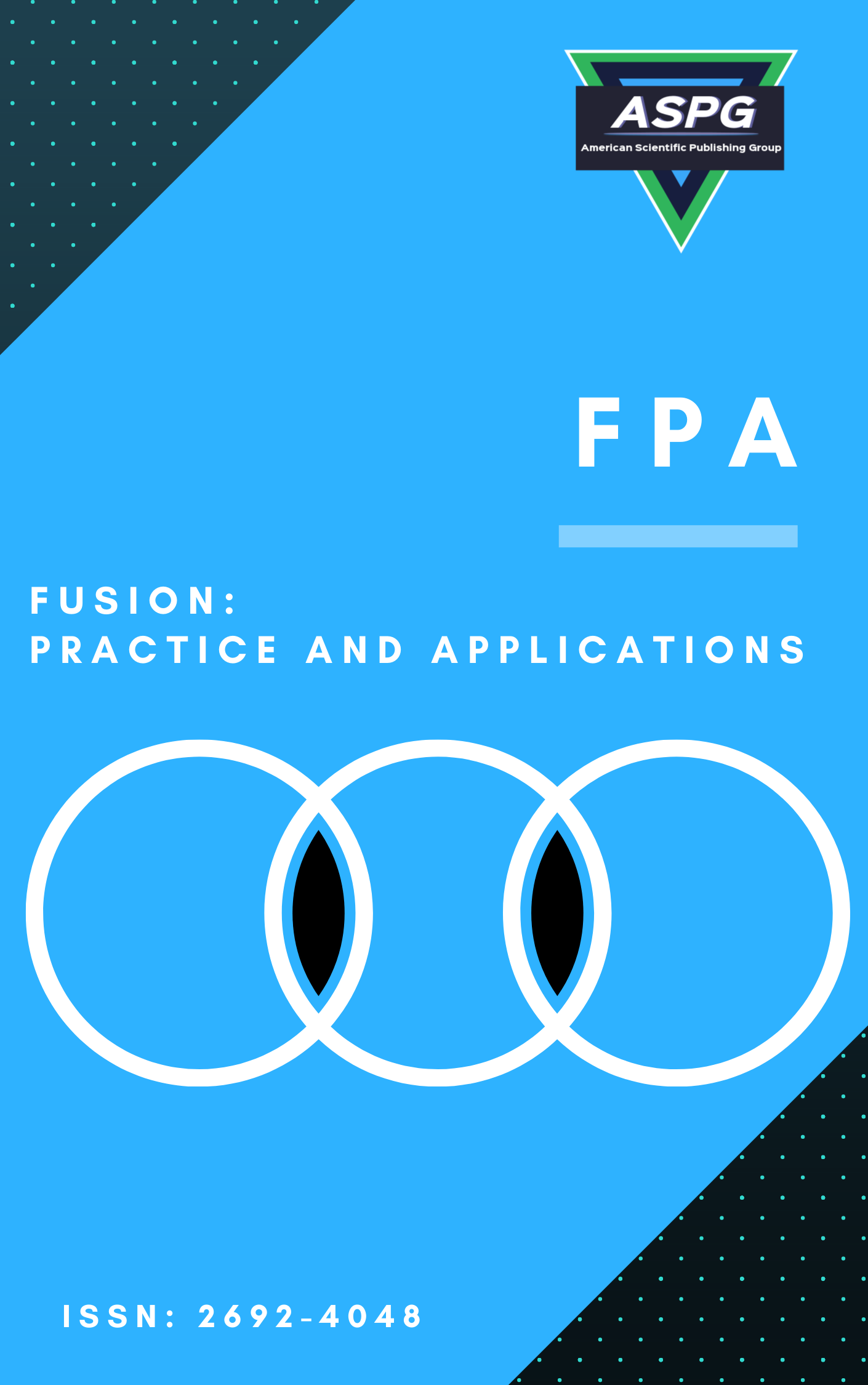

Volume 19 , Issue 2 , PP: 304-314, 2025 | Cite this article as | XML | Html | PDF | Full Length Article
Badana Mahesh 1 * , Mandava Kranthi Kiran 2
Doi: https://doi.org/10.54216/FPA.190222
Precise assessment of software development effort (SDE) is essential for efficient project planning and resource distribution. Conventional methods frequently encounter difficulties in generalizing across different project areas because of disparate data attributes. This research presents an innovative approach that combines transfer learning with hybrid deep learning models to tackle these difficulties. The platform utilizes pre-trained Random Forest and LSTM models, enhanced using Jaya optimization, to improve prediction accuracy and adapt effectively to new datasets. Transfer learning is utilized to extract reusable patterns and features from source domains, facilitating effortless adaption to target domains with minimum retraining. Extensive experiments on various benchmark datasets illustrate the proposed framework's enhanced performance regarding accuracy, scalability, and robustness relative to leading techniques. This study emphasizes the capability of transfer learning to transform SDE estimates, providing a scalable and domain-adaptive approach for intricate software projects.
Software Development Effort Estimation , Hybrid Methodology , Jaya Optimization , Random Forest-LSTM , Transfer Learning
[1] H. Aljahdali, A. F. Sheta, and D. C. Rine, “Predicting software effort estimation using machine learning techniques,” in Proc. 3rd Int. Conf. Softw. Eng. Appl. (SEA), 2001, pp. 233–238.
[2] A. E. Iordan, “An optimized LSTM neural network for accurate estimation of software development effort,” Mathematics, vol. 12, no. 2, p. 200, 2024.
[3] K. Kumar, S. Bilgaiyan, and B. Mishra, “Software effort estimation based on ensemble extreme gradient boosting algorithm and modified Jaya optimization algorithm,” Int. J. Comput. Intell. Appl., vol. 23, 2023.
[4] E. Kocaguneli, T. Menzies, and E. Mendes, “Transfer learning in effort estimation,” Empir. Softw. Eng., vol. 20, pp. 813–843, 2015.
[5] M. Bbadana and M. K. Kiran, “A hybrid metaheuristic aware enhanced deep learning approach for software effort estimation,” Eng. Technol. Appl. Sci. Res., vol. 14, no. 6, pp. 19024–19029, 2024.
[6] M. Jørgensen and M. Shepperd, “A systematic review of software development cost estimation studies,” IEEE Trans. Softw. Eng., vol. 33, no. 1, pp. 33–53, 2007.
[7] S. K. Sehra, Y. S. Brar, N. Kaur, and S. S. Sehra, “Research patterns and trends in software effort estimation,” Inf. Softw. Technol., vol. 91, pp. 1–21, 2017.
[8] Meenakshi and M. Pareek, “Software effort estimation using deep learning: A gentle review,” in Proc. Int. Conf. Sustain. Innov. Solut. Eng. Technol., Singapore, 2023, pp. 351–364.
[9] P. S. Kumar, H. S. Behera, A. Kumari, J. Nayak, and B. Naik, “Advancement from neural networks to deep learning in software effort estimation: Perspective of two decades,” Comput. Sci. Rev., vol. 38, p. 100288, 2020.
[10] K. B. Mari, P. Latha, and E. Praynlin, “Software effort estimation using genetic algorithm,” Int. J. Inf. Sci. Comput., vol. 8, no. 1, 2014.
[11] D. K. K. Reddy and H. S. Behera, “Software effort estimation using particle swarm optimization: Advances and challenges,” in Proc. Comput. Intell. Pattern Recognit. (CIPR), 2020, pp. 243–258.
[12] A. Tiwari and S. Kumar, “A logistic binary Jaya optimization-based channel selection scheme for wireless body area networks,” Comput. Mater. Continua, vol. 64, no. 1, pp. 123–138, 2020.
[13] Y. Ding, M. Jia, Q. Miao, and P. Huang, “Remaining useful life estimation using deep metric transfer learning for kernel regression,” Reliab. Eng. Syst. Saf., vol. 212, p. 107583, 2021.
[14] N. Gupta and N. Rajpal, “Transfer learning in machine learning: A review,” Procedia Comput. Sci., vol. 167, pp. 1440–1450, 2020.
[15] Y. Mahmood, N. Kama, A. Azmi, A. S. Khan, and M. Ali, “Software effort estimation accuracy prediction of machine learning techniques: A systematic performance evaluation,” Softw. Pract. Exp., vol. 52, no. 1, pp. 39–65, 2022.
[16] K. K. Beesetti, S. Bilgaiyan, and B. S. P. Mishra, “A hybrid feature selection method using multi-objective Jaya algorithm,” in Proc. Int. Conf. Comput. Commun. Power Technol. (IC3P), 2022, pp. 232–237.
[17] F. Gholami and H. Khajehei, “Software effort estimation based on transfer learning,” Expert Syst. Appl., vol. 141, p. 112970, 2020.
[18] ISBSG, Estimating Software Effort, Int. Softw. Benchmark. Stand. Group, 2020.
[19] S. K. Pandey, R. B. Mishra, and A. K. Tripathi, “Machine learning-based methods for software fault prediction: A survey,” Expert Syst. Appl., vol. 172, p. 114595, 2021.
[20] X. Hou et al., “Large language models for software engineering: A systematic literature review,” ACM Trans. Softw. Eng. Methodol., vol. 33, no. 8, pp. 1–79, 2024.
[21] J. Pachouly, S. Ahirrao, K. Kotecha, G. Selvachandran, and A. Abraham, “A systematic literature review on software defect prediction using artificial intelligence: Datasets, data validation methods, approaches, and tools,” Eng. Appl. Artif. Intell., vol. 111, p. 104773, 2022.
[22] N. Peitek, S. Apel, C. Parnin, A. Brechmann, and J. Siegmund, “Program comprehension and code complexity metrics: An fMRI study,” in Proc. IEEE/ACM 43rd Int. Conf. Softw. Eng. (ICSE), 2021, pp. 524–536.
[23] Y. Zheng and Q. Song, “A transfer learning approach to enhance software defect prediction across different datasets,” J. Syst. Softw., vol. 152, pp. 50–64, 2019.
[24] S. Kanmani and S. Suresh, “A hybrid algorithm using ant and bee colony optimization for feature selection and classification (AC-ABC Hybrid),” Comput. Mater. Continua, vol. 64, no. 2, pp. 789–804, 2020.
[25] N. Tran, T. Tran, and N. Nguyen, “Leveraging AI for enhanced software effort estimation: A comprehensive study and framework proposal,” arXiv preprint, arXiv: 2402.05484, 2024.